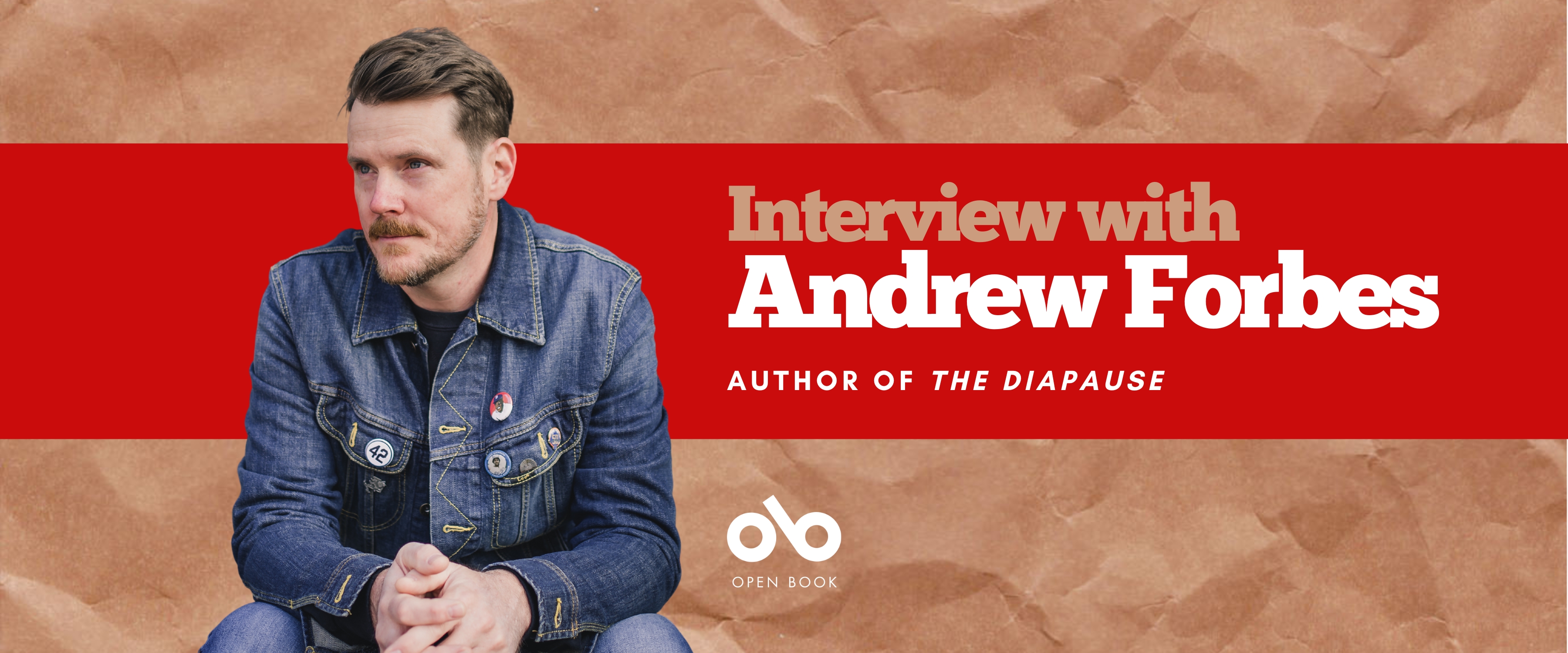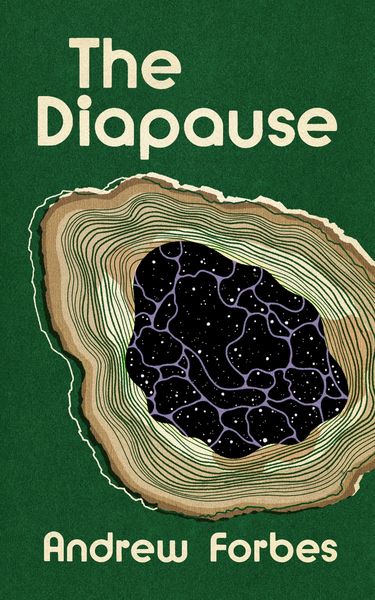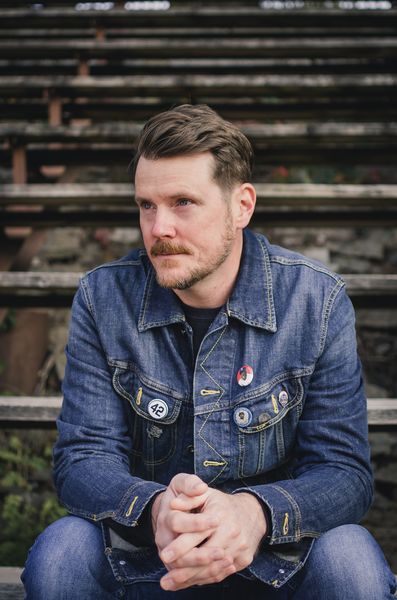Andrew Forbes' Debut Novel, The Diapause, is a Literary-Speculative Gem
Readers of Open Book may find our featured author of the day familiar, as the prolific Andrew Forbes has had an excerpt of his recent novella published on the site just this summer. Known for his stirring and poignant non-fiction, and for his considerable skills in short fiction, fans of the author have been waiting for his first full-length novel for years now.
To their collective joy, The Diapause (Invisible Publishing) was released at the beginning of October, and has gone on to received plaudits and critical acclaim since its publication. The novel switches expertly between timelines to follow a ten-year-old Gabriel, holed up with his parents in a disused family cabin to ride out a pandemic, and then the adult Gabriel as he copes with the trappings of his daily life and the dissolution of his family since that fateful season in his youth, where he last felt protected and free.
The novel is a literary-speculative gem that delves deep into the freedom of youth, the future, complicated family dynamics, loss, isolation, heartbreak, and endurance in the era of advanced climate change and growing uncertainty. Forbes' latest work shows bravery and grace, exploring some of the most important issues of our time with subtlety and nuance.
Join us today for this fascinating Long Story Novelist Interview with the author, and learn more about the ingredients that went into this riveting story.
Open Book:
Do you remember how your first started this novel or the very first bit of writing you did for it?
Andrew Forbes:
I know exactly where I was: sitting in a wooden chair beneath an oak tree with my laptop open. It was August, 2020. The questions facing my wife and me—and millions of other parents—were sitting with me, namely what would it look like when we sent our kids back to school the following month (if the schools were open), how would it work, could it be made safe, etc. I figured the best way for me to make sense of it, to deal with that anxiety, that tension, was to write my way into it, so I sat down and began.
OB:
How did you choose the setting of your novel? What connection, if any, did you have to the setting when you began writing?
AF:
The setting was more or less where I was sitting when I started writing: the lakes and rocks and forests north of Peterborough, the refuge of a family who’d left the city seeking isolation and safety as pandemic lockdowns wore on. In the novel I pushed it a little further north to heighten their isolation, but the physical landscape was intact from the get-go.
OB:
Did the ending of your novel change at all through your drafts? If so, how?
Your CanLit News
Subscribe to Open Book’s newsletter to get local book events, literary content, writing tips, and more in your inbox
AF:
The ending stayed the same throughout, but it got pushed further from the beginning. The book began life as a novella that focused on the life of this family—ten-year-old Gabe and his parents, Kat and Art—as they spent that fraught summer in an old cabin in the woods. And the final scene was fully baked very early in the process. I knew I was writing toward it. But when I had a draft of the story and showed it to my editor, Bryan Ibeas, he suggested there was more there, that the reader would want to know what Gabe’s life was like after the events depicted. In the end I wrote well into his (and our) future, which was both the biggest challenge and the greatest thrill of writing the book. I had to imagine a future, and doing so required venturing into speculative fiction, which I’d never done before. But the story circles back to its original setting in the final pages. I won’t say more.
OB:
If you had to describe your book in one sentence, what would you say?
AF:
Is a run-on sentence okay? It’s a pandemic book that isn’t really a pandemic book, a quiet cli-fi novel about the effect events both global and domestic can have on a person’s life, and how people can find themselves isolated even while in the embrace of the people to whom they’re closest.
OB:
Did you do any specific research for this novel? Tell us a bit about that process.
AF:
None originally, when I thought I was writing a Canadian version of Per Petterson’s Out Stealing Horses. But once it became clear that I had more work to do, imagining a future, I became an antenna, trying to collect and absorb everything I could about the life of pathogens, the currents of culture and society, the process of climate change, and our possible reactions to all of this. I became highly attuned to my newsfeed (and it to me), absorbing news about science, politics, entertainment, everything. I guess I’d also done some research before the fact, having spent months before the pandemic reading climate fiction for an unrelated project. So that was all in my head, too.
OB:
Did you include an epigraph in your book? If so, how did you choose it and how does it relate to the narrative?
AF:
“Mama, here comes midnight with the full moon in its jaws,” from “Farewell Transmission,” by Songs: Ohia, aka the late, lamented musician Jason Molina. It relates to literal events in the book, as well as to the relationships depicted. I was listening to a lot of his music while writing the book. There are many lines I might have quoted—“The whole place is dark,” the song begins—but that one suited best, almost eerily so.
______________________________________________
Andrew Forbes is the author of the short story collections Lands and Forests (2019), and What You Need (2015), which was shortlisted for the Danuta Gleed Literary Award, and named a finalist for the Trillium Book Prize. He is also the author of two collections of baseball writing, The Utility of Boredom and The Only Way is the Steady Way. His work has appeared in publications such as the Toronto Star, Canadian Notes and Queries, and Maisonneuve Magazine. Born in Ottawa, Forbes has lived in Atlantic Canada and rural eastern Ontario, and now resides in Peterborough, Ontario.







